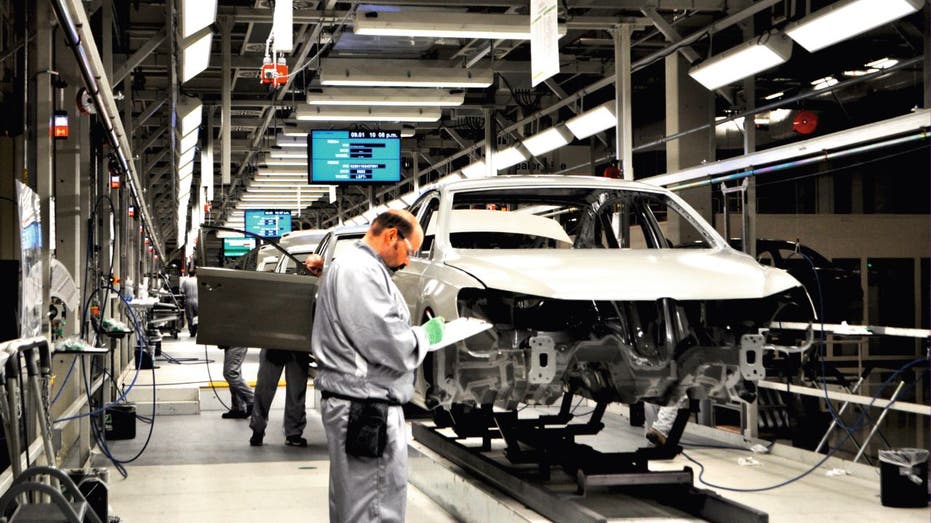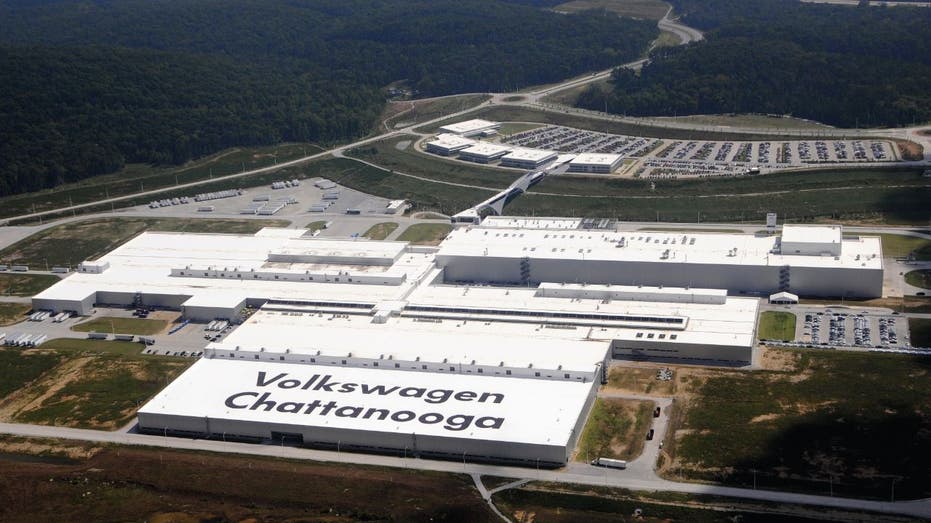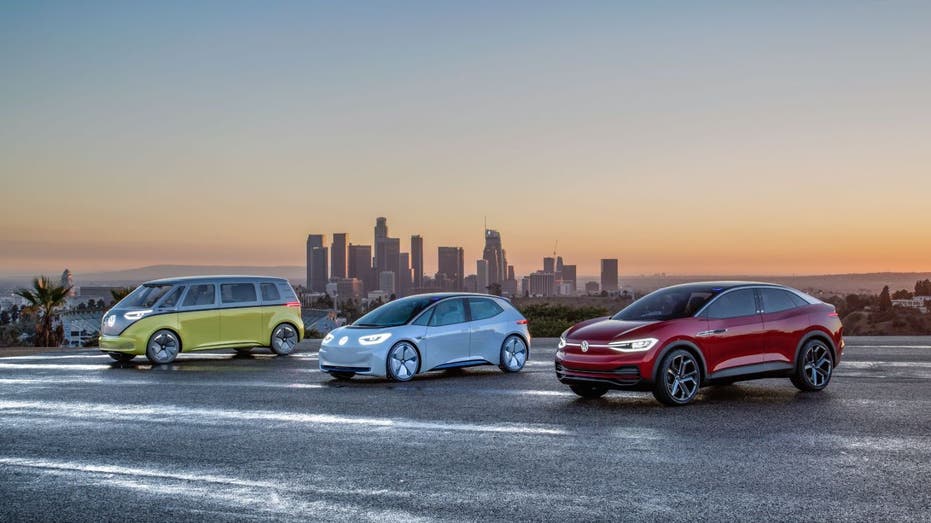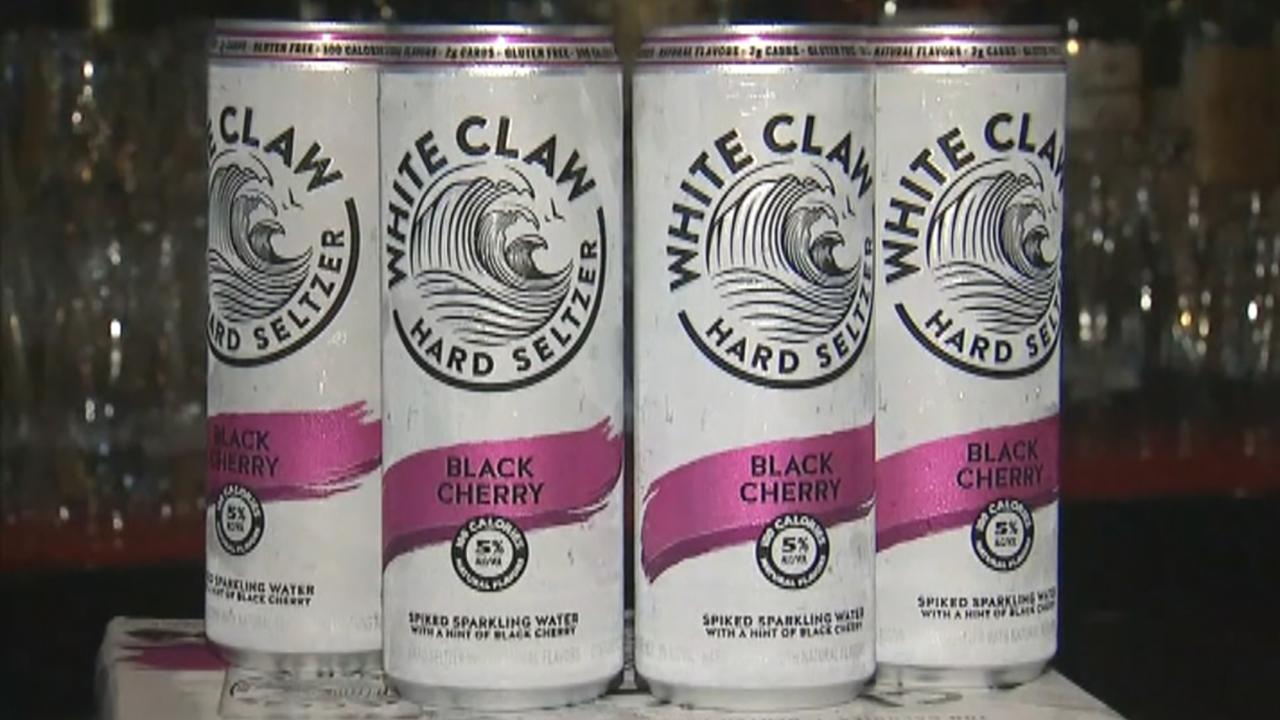VW breaking ground on $800M Tennessee plant expansion for electric vehicles
Volkswagen plans to add 1,000 jobs to the facility.
Volkswagen is set to break ground on its $800 million Chattanooga, Tennessee, assembly plant expansion.
Work on the expansion will start Wednesday, according to Tennessee Gov. Bill Lee's office.
Volkswagen said it's investing in the plant in order to add electric vehicle production at the facility. It plans to produce the new ID Crozz SUV starting in 2022 in Chattanooga. It's one of just eight facilities across the world and the only in North America where VW said it would produce its upcoming ID electric cars.

Quality check in the paint shop at Volkswagen's Chattanooga plant. (Photo: Volkswagen)
WHY GM AND VOLKSWAGEN ARE ENDING HYBRID VEHICLES
VW currently produces its Passat sedan and Atlas and Atlas Cross Sport SUVs at the Chattanooga plant. About 3,800 people work there. The expansion will increase the 3.4 million-square-foot plant's size by about a quarter and the company plans to add about 1,000 jobs at the site.
Stocks In This Article:
Herbert Diess, CEO of Volkswagen AG, said earlier this year that Chattanooga "is a key part" of the company's growth strategy for North America.
"Together with our ongoing investments and this increase in local production, we are strengthening the foundation for sustainable growth of the Volkswagen brand in the U.S.," Diess said.

Volkswagen's 1,400-acre Chattanooga facility as seen from above. (Credit: Volkswagen)
GET FOX BUSINESS ON THE GO BY CLICKING HERE
The Chattanooga project is part of what Volkswagen Group has said will be a $50 billion investment through 2023 for developing and producing electric vehicles and digital services.
Volkswagen's push into electric is coming on the tails of its emissions scandal. VW's North American market share fell below 2 percent for the first time in nearly a decade after federal authorities said the company had cheated on emissions tests, but VW was able to recover thanks to its push into SUVs like the Chattanooga-built Atlas. Volkswagen's SUV sales growth has blossomed from about 15 percent in 2016 to more than 45 percent last year, according to its 2018 year-end sales report.
Hinrich J. Woebcken, a former Volkswagen North America CEO who took over amid the scandal and led its recovery, told FOX Business in a statement that he is "glad to see that the turnaround- and comeback story for VW in the U.S. and North America, which was launched some years ago, is now transitioning into the electric future."
The move into electric has been inspired by several factors. For one, Volkswagen has forecast that it will sell 150,000 electric vehicles by 2020 worldwide and 1 million by 2025. But the company is also required to invest $2 billion in zero-emissions vehicle charging infrastructure as part of its 2016 settlement with the Environmental Protection Agency. And as long as they're putting in charging stations, they may as well sell more cars to go with them, according to automotive expert Lauren Fix, "the car coach."
"They're doing this because they're building the infrastructure," she said.

Volkswagen's electric concept vehicles, the ID Buzz, ID and ID Crozz. (Credit: Volkswagen)
VW DIESELS CAUSED OUTRAGE, NOW THEY'RE A GREAT BUY
Fix told FOX Business she believes VW is moving too heavily into electric and that the company should be planning for vehicles that use a variety of different fuels, including gasoline and electricity, but also diesel and other options that are being explored like kerosene, hydrogen or even seaweed.
"The goal is for Volkswagen to go 100 percent electric," Fix said. "I think it's a huge mistake. The answer is truly — based on sales, based on consumer wants, based on the prices and everything else — there has to be a mixture."
And while VW has forecast a big leap in electric vehicle sales, Fix said they currently only make up a small portion of the market and their popularity has dropped as government incentives have been pulled.
"There's no way that just one solution is the solution," she said. "We learned that with just gasoline-powered cars."
READ MORE ON FOX BUSINESS BY CLICKING HERE




















